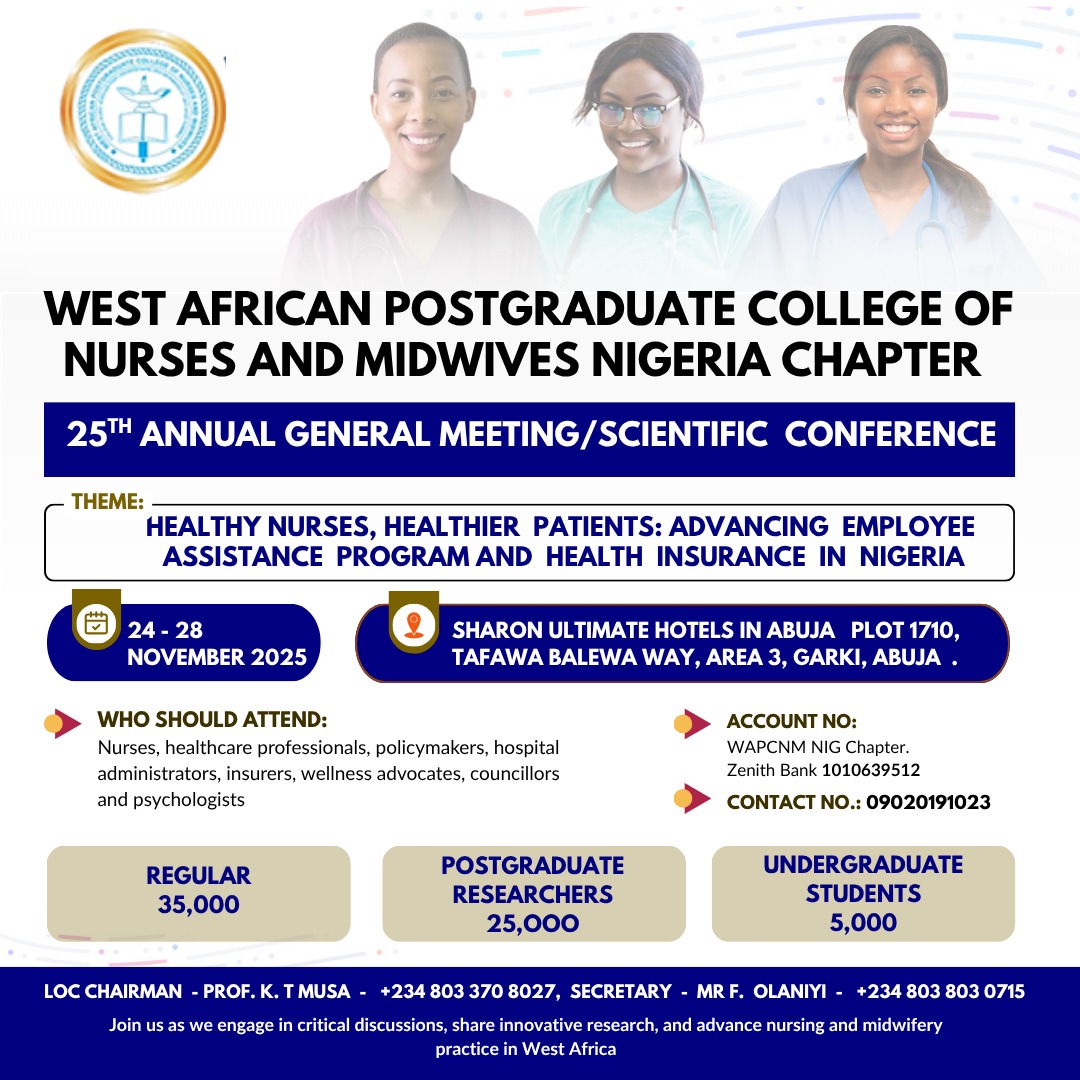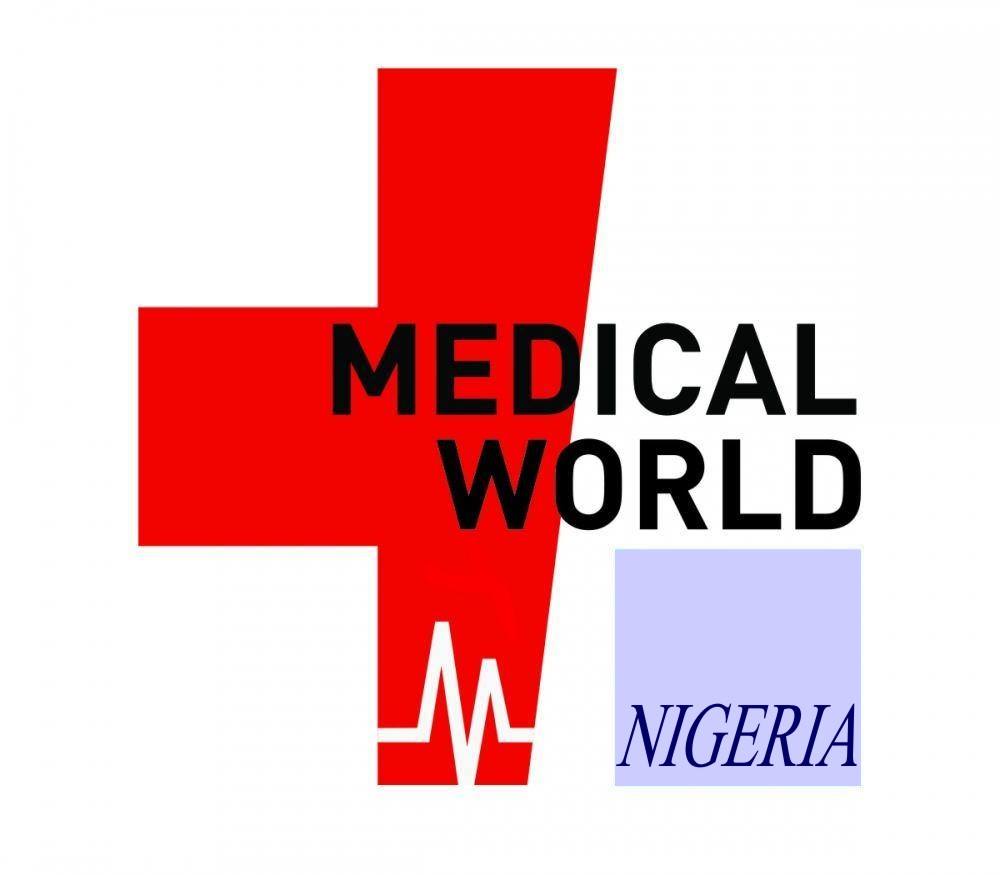The 3rd Nigeria Family Planning Conference, November 26th - 28th, 2014 Abuja
The 3rd Nigeria Family Planning Conference was organized by the Association for the Advancement of Family Planning (AAFP) in collaboration with the Federal Ministry of Health (FMOH) and other stakeholders between November 26th and 28th 2014 at the Ladi Kwali Hall, Sheraton Abuja Hotel. AAFP is a registered national coalition of family planning (FP) advocates (individuals and orgnizations (NGOs), Civil Society Organizations (CSOs) and the private sector.
The Conference was organized to improve access to family planning information and services in Nigeria, and had as its theme:
Bridging the Gaps between knowlegde & Use of Family Planning in Nigeria.
A total of 569 participants comprising representatives from all the states of the federation, donors development partners, religious/traditional leaders, CSOs the academia, researchers, women and youth organizations, professional associations the private sector, journalists and resresentatives of government ministries and parastatals praticipated in the conference. In addition, over 60 youth delegates from across the country attended the conference.
The conference was declared open by the Minister of State for Health and the Supervising Minister of Health Dr. Khaliru Alhassan, represented by Dr. Wapad,
Inuwa Balami, the Director of the Family Health Department of the Federal Ministry of Health. Goodwill messages were delivered by the UNFPA, USAID, the Bi
& Melinda Gates Foundation, the National Population Commission, and Federal Ministry of Women Affairs and Social Welfare, amongst others.
Pre-conference activities included a Youth Forum that focused on and addressed the Family Planning (FP) Needs of Young People. This was held on November 25th at the Reiz Continental Hotel, Abuja.
The 3rd Nigeria Family Planning Conference was held on the heels of the 2013 National Demographic and Health Survey (NDHS).
The NDHS results/findings indicated knowledge of Family Planning in Nigeria to be 85 per cent while actual use of modern methods is only 10 per cent. The NDHS also showed that almost twice the number of women who currently.use modern contraceptives are in need of limiting or spacing of their births but are not using any means of contraception. Addressing this unmet FP need will avert close to 1.6 million unintended births and reduce maternal deaths by 40 percent.
A key highlight of the Conference was the launch of three national reproductive health policy documents by the representative of the Supervisim Ministerof Health:
1. The Nigeria Family Planning Blue Print (Scale-Up Plan)
2. National LongActing Reversible Contraceptive (LARC) Strategy
3. Global Programme to Enhance Reproductive Health Commodity Security (GPRHCS) Survey Report
After three days of deliberations which included keynote addresses, presentations of research findings and abstracts, reports of family planning and reproductive health project best practices, models and lessons learnt, the conference participants:

Acknowledged the recent efforts of the federal and state governments, donors, development partners and key stakeholders in the development and launch of the Nigeria Family Planning Blueprint (Scale-up Plan); the National Strategy on Long Acting Reversible Contraceptive (LARC); the Approval of the National Task Shifting and Task Sharing Policies on Provision of LARC by Community Health Extension Workers (CHEWs); the open commitment to Family Planning and Reproductive Health Commodity Security and the leadership of Nigeria at the UN Commission on Live-Saving Commodities, among others, Reaffirmed that bridging the gap between knowledge (85%) and the use of modern contraceptives (mCPR 10%) would not only reduce maternal mortality but would also accelerate fertility decline and promote national development;
Expressed concern on the slow progress on the use of modern contraception as shown by the stagnation and low MCPR of 10 percent in the country since 2003
compared to other African countries;
Called on governments at federal, state and LGA levels, to ensure that everything possible is done to increase the uptake of modern contraceptives in Nigeria
by, at least 4.2% mCPR annually, in order to achieve the 36% CPR by 2018, the goal set in the Nigeria Family Planning Blueprint (Scale-Up Plan).
The participants made the followlnq key recommendations:
1. The urgent Presidential assent of the National Health Bill that will release resources for Primary Health Care and also reduce Nigeria's depencdence on external donors and funders. This will enable the Government of Nigeria to faithfully implement the Nigeria FP Blueprint and the strategies experessed there-in including - creating budget lines and increasing funding for key activities such as the procurement and distribution of required essential lifesaving commodities, large scale training of health workers on LARC services and increased partnership with the private sector, amongst others.
2. We call on the Federal Government to keep to its promise to FP 2020 to make available $3,000,000 (approximately N525, 000,000) annually for procurement of commodities and additional $8,350,000 (approximately N1,461,250,000) annually over next four years which is a commitment of health services
3. Renew commitment to improved population management through the review of the National Population policy, investing in quality education and health, including reproductive health and services for the youth. This, in addition to good governance, will enable Nigeria to reap the benefits of Demographic Dividends and move the nation towards becoming one of the top 20 economies in the world by the year 2020.
4. Promote active youth participation in the planning, designing and implementation of policies especially those related to FP and RH services, and address all barriers that hinder young peoples's universal access to the comprehensive Sexual and Reproductive Health informationand services.
5. Scale up access to comprehensive and youth friendly health information and services for young people including marginalized and most at risk groups such as physically and mentally challenged persons, internally displaced persons, people in rural areas and the urban poor through a rights-based approach.
6. Increase governments' (LGA, State and Federal) health budgetary allocations, release and expenditure to prompte Sexual and Reproduction Health (SRH) research and programs in Nigeria.
CONFERENCE COMMUNIQUE COMMITTEE
Dr. Kole Shettima, Co-Chair, Local Organizing Committee
Mr. Bola Kusemiju, Chiarman, Communique Committee
Dr. Ejike Oji, Chairman, Local Organizing Committee
ABUJA: Training Schedule for Basic Life Support BLS, Pediatric Advanced Life Support (PALS), Advanced Cardiovascular Life Support ACLS, First Aid, CPR, AED
PORTHARCOURT: Training Schedule for Basic Life Support BLS, Pediatric Advanced Life Support (PALS), Advanced Cardiovascular Life Support ACLS, First Aid, CPR, AED
LAGOS: Training Schedule for Basic Life Support BLS, Pediatric Advanced Life Support (PALS), Advanced Cardiovascular Life Support ACLS, First Aid, CPR, AED


